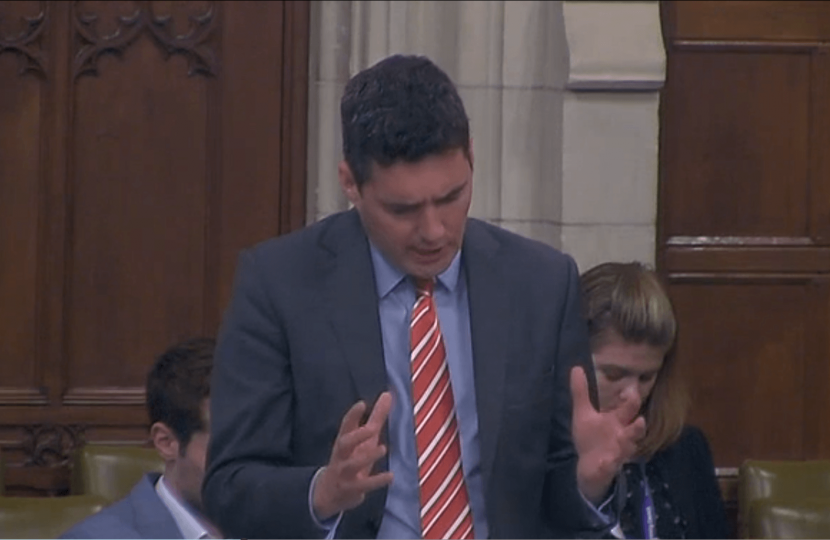
Today in Westminster Hall, Huw spoke on the importance in teaching Public Legal Education to young people. You can watch Huw's contribution here: goo.gl/LfqH6G and read below.
Huw:
It is a pleasure to serve under your chairmanship, Mr Pritchard. I congratulate my hon. Friend the Member for North East Hampshire (Mr Jayawardena) on securing this important debate. I am fortunate indeed to have been surrounded by the law for the past 30 years, from studying it as a 16-year-old for A-level and going on to study at degree level to becoming a barrister and spending 18 years as a lawyer, and then in the past three years trying to help make the law in this place. In a way, this debate is about how we can help young people ensure that they never have to come across somebody like me. I believe absolutely passionately that young people should be put in a position where they can understand rights and wrongs, rights and responsibilities and the way to settle disputes without the need for them to escalate. That is why I am passionate about the concept of public legal education in our schools. I feel to a certain extent that we are almost there, and this is the bit I want to reference with respect to the Minister.
A year or so ago, I served on the Children and Social Work Bill Committee, and a big discussion was held on personal, social and health and economic education. It came up in a narrow fashion because the discussion was about sex and relationship education and whether that should be a compulsory curriculum subject. In my mind, there was a great opportunity to go broader than that to teach our young people something wider than the citizenship curriculum subject that we have at the moment.
Citizenship is a hugely important subject that covers the rule of law, the ability to articulate debate, volunteering, and how to plan one’s life in future, but it could be so much more, and public legal education could easily fold into that. Although it has been confirmed for primary schools that compulsory relationship education will come in—and for secondary schools, sex and relationship education—by September 2019, I think we are somewhat in the dark as to what will occur to the concept of PSHE on a wider basis. I would like to see PSHE established on a compulsory footing, but I would also want to make sure that we do not overload our schools with yet another subject in the curriculum.
Mrs Miller (intervention):
My hon. Friend is making an extremely important speech. The law is already there; the Secretary of State has put in place a law that can make PSHE compulsory. It just needs to be enacted. I hope my hon. Friend welcomes that, because the Government have actually done something that had been not done for 17 years by Governments of successive colours.
Huw:
It will be down to the Minister to confirm this, but my understanding is that although there has been some form of commitment—we are absolutely clear as to what has been brought in for primaries and secondaries with regard to compulsory relationship education—so far that clarity has not been given for the wider PSHE. I look to the Minister to confirm that, but my research, certainly from February, tells me that that was indeed the case, and that is the commitment I want to see from the Government.
On the current challenges for teachers, I have long taken the view that while it is essential to get the basics of English and maths right in our primary schools—we have known for many years that they have failed in that regard—I feel that there is a strong emphasis on those two subjects and they lead to the exclusion in some schools or a lack of attention in others on the wider curriculum subjects that will give our young children and pupils the ability to navigate their way through the challenges of life, which is as essential as giving them the basics in English and maths.
I will not delay any further. I know that the hon. and learned Member for Edinburgh South West (Joanna Cherry), who speaks with great knowledge on this matter, has had to cross out part of her speech, so I hope she will get some time back. I look forward to hearing from the Minister as to whether PSHE will be introduced and whether that gives us a golden opportunity to advance public legal education within that sphere.


